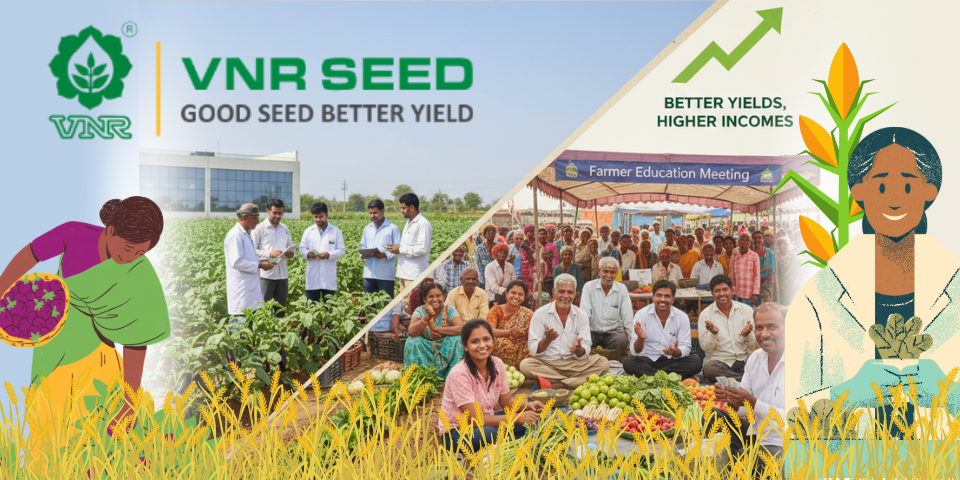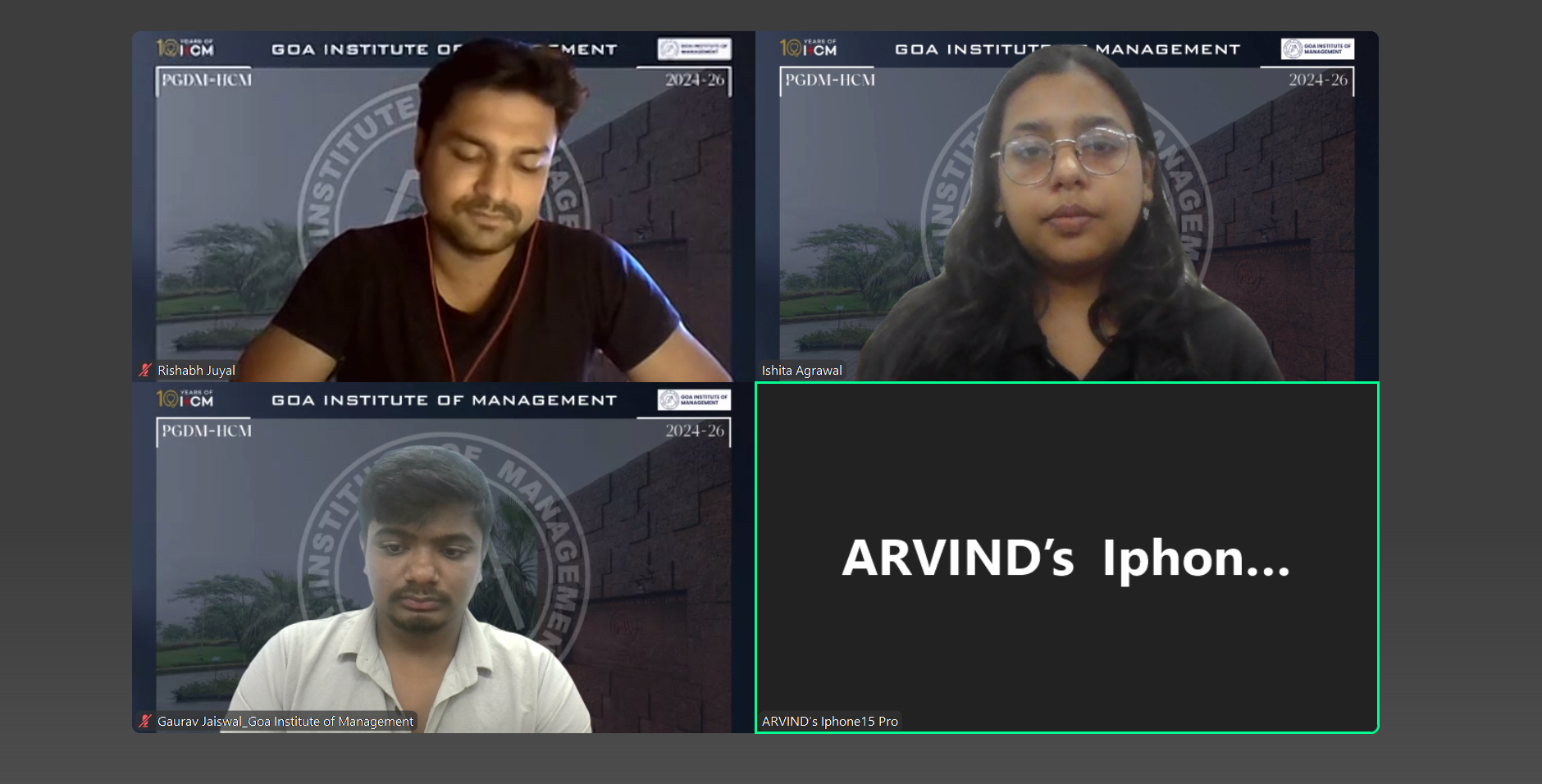




Keep this story going! Share below!
In the heart of Raipur, VNR Seeds has grown from a family’s farming experiment into one of India’s most respected agricultural input providers. Their work goes beyond supplying planting materials and seeds; VNR has built a reputation for research-driven innovation, farmer education, and a relentless focus on improving yields and incomes. This story traces their journey of patience, experimentation, and community engagement that has helped transform the seed business into a catalyst for farmer prosperity.
VNR’s biggest innovation is not a single seed variety, but a business model grounded in research and farmer partnership. As Mr. Arvind Agrawal, Director of VNR Seeds, explained, “Our strength lies in research. We try to develop disease-tolerant and resistant varieties. By using technology, farmers can increase their income, improve their yield, and reach optimum productivity.”
Unlike other industries, agriculture does not allow for shortcuts. Developing a new seed takes 7–10 years, followed by another 3 years of field testing. This long 13-year cycle requires immense patience, and VNR built its identity by committing to that process. The company has consistently worked on producing varieties that are resilient, high-yielding, and adapted to diverse regional needs.
One principle has guided them throughout: no single product should account for more than 5% of revenue. This ensured that they constantly innovated, diversified, and avoided over-reliance. Farmers directly decide which product survives—if a variety doesn’t work for them, it will vanish from the market.

The origins of VNR Seeds go back to their own farming experience. Farming on nearly 3,500 acres, they realized how critical seeds are: even if 98% of practices are done right, the wrong seed can ruin an entire crop. Mr. Agrawal recalled, “That 2% is very critical. Farmers are often not aware, and quality seeds are not always available.”
Recognizing this gap, the family diversified from farming into seed research. What started as a solution to their own farming challenges became the foundation of a business dedicated to solving farmers’ most pressing problems.
Farmer education was part of the model from the beginning. Every Tuesday, the team would host meetings on their farm, bringing farmers together to share practices, compare results, and learn. Sometimes they would travel to villages themselves. Over the years, nearly 20,000 farmers visited annually, saving collectively millions of rupees by adopting better practices. This peer-learning approach helped bridge the information gap and encouraged the adoption of high-quality seeds.
At its core, VNR Seeds works on developing high-yielding and disease-resistant seed varieties. By ensuring that farmers get access to quality seeds, they help improve agricultural productivity and food security. Their innovations directly support smallholder farmers, who are crucial to India’s food supply.
VNR’s philosophy is built on improving farmer incomes. The company has consistently focused on varieties that are simple to grow and that reduce the risk of crop failure. By empowering farmers with reliable seeds and awareness programs, VNR helps farming families stabilize and grow their incomes, reducing rural poverty.
With its wide network of around 30,000 farmers engaged in seed production, VNR creates sustainable livelihoods in rural India. By introducing better crop options and building long-term relationships, the company strengthens rural economies while ensuring fair participation in the agricultural value chain.
VNR’s long-standing culture of farmer meetings and peer-learning exemplifies partnership in action. Farmers share experiences, learn from each other, and grow together. The company acts as a facilitator of knowledge and innovation, not just a supplier. This spirit of collaboration advances sustainable agriculture at scale.
For VNR, innovation was always about simplicity and fit. Crops should be easy to grow, not add complications, and naturally align with a farmer’s workflow. Over time, this approach not only strengthened the company’s reputation but also built long-term trust with farmers.
The business impact has been significant: VNR now ranks among the top five players in its crop categories across India. Their products, whether in brinjal, okra, tomato, or other vegetables, are recognized for yield, disease resistance, and adaptability.
Every new variety was judged not in a laboratory but in the farmer’s field. If the seed worked, if it grew easily, resisted disease, and gave good yield, it stayed. If not, it disappeared. This philosophy kept the company grounded in reality. Over time, it helped VNR build a portfolio that was trusted by farmers across India.
The benefit for the business has been steady, sustainable growth. By never depending on a single “blockbuster” product, VNR avoided the risks that have undone many agri-companies. Each new product was another step toward resilience.
For farmers and rural communities, the benefits were even more direct. Seeds that worked reliably meant better harvests and more income. Awareness programs and peer learning reduced the knowledge gap, empowering farmers to make informed choices. In many villages, VNR’s work meant the difference between loss and livelihood.
For society, the ripple effects are even greater. Access to the right seed directly determines a farmer’s livelihood. As Mr. Agrawal emphasized, “In the value chain, the seed may only account for 2% of cost, but for a farmer it can impact 98% of the outcome.” By ensuring quality and availability, VNR has improved food security, farmer incomes, and rural resilience.
Get stories of positive business innovations from around the world delivered right to your inbox.
CA Arvind Agrawal, Director


VNR Seeds, headquartered in Raipur, is one of India’s leading seed companies specializing in high-yielding and disease-resistant vegetable and field crop varieties. Founded on a strong base of research and farmer engagement, the company provides quality seeds and planting material (Agri-input providers) to improve agricultural productivity and farmer incomes. With a network of thousands of farmers across India, VNR Seeds combines science, innovation, and trust to strengthen rural livelihoods and food security.